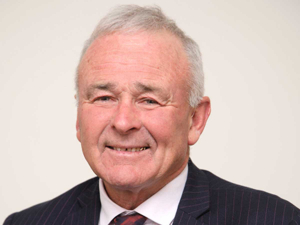Dairy farmers urged to participate in 2026 Levy vote
DairyNZ chair Tracy Brown is urging dairy farmers to participate in the 2026 Levy vote, to be held early next year.
 Environment Southland chairman Nicol Horrell says he is pleased the advisory group has worked well together.
Environment Southland chairman Nicol Horrell says he is pleased the advisory group has worked well together.
A group formed to look at implementation of intensive winter grazing regulations has delivered its advice to the Government.
The Southland Advisory Group, made up of farmers, Fish & Game and Environment Southland, presented their advice to Agriculture Minister Damien O’Connor and Environment Minister David Parker.
Following a meeting with the ministers in September 2020, the group was formed and asked to look at the implementation of the intensive winter grazing rules within the new National Environmental Standards for Freshwater.
The group is made up of several farmers, and staff from Beef + Lamb NZ (B+LNZ), DairyNZ, Fish & Game, and Environment Southland: members have worked together on finding practical solutions to some of the issues raised with implementing the regulations across the country.
Environment Southland chairman Nicol Horrell says he is pleased the group has worked well together and has come up with a package of recommendations to make the regulations more practical to implement for farmers while not diminishing the protections they give to waterways.
“The group has worked at pace and come up with some very practical suggestions. I am optimistic this report and recommendations will land well with ministers and officials,” Horrell said.
B+LNZ chairman Andrew Morrison says the process, which was led by Environment Southland, has been an effective way of addressing major concerns with the new rules.
“B+LNZ hopes that ministers accept the recommendations. We look forward to working together collaboratively on progressing them to a practical endpoint. Farmers need a speedy resolution to these issues so they can get clarity about what’s required and when,” he said.
DairyNZ strategy and investment leader Dr David Burger says the organisation is pleased to have worked with the different groups to develop the recommendations.
“This collaborative approach is the way forward for developing regional council plans as the National Environmental Standard for Freshwater takes effect over the next few years,” he said.
The review recommends the removal of pugging and replanting date conditions and instead moving to the identification and protection of critical source areas.
This approach is recommended because research shows this best way to address the effects from the activity on freshwater health.
It recommends a change to the slope rule, removing the requirement to determine the mean slope of a paddock and replacing it with a specific maximum slope of 15 degrees.
With the current situation in the European farm machinery market being described as difficult at best, it’s perhaps no surprise that the upcoming AgriSIMA 2026 agricultural machinery exhibition, scheduled for February 2026 at Paris-Nord Villepinte, has been cancelled.
The Meat Industry Association of New Zealand (MIA) has launched the first in-market activation of the refreshed Taste Pure Nature country-of-origin brand with an exclusive pop-up restaurant experience in Shanghai.
Jayna Wadsworth, daughter of the late New Zealand wicketkeeper Ken Wadsworth, has launched an auction of cricket memorabilia to raise funds for I Am Hope's youth mental health work.
As we move into the 2025/26 growing season, the Tractor and Machinery Association (TAMA) reports that the third quarter results for the year to date is showing that the stagnated tractor market of the last 18 months is showing signs of recovery.
DairyNZ chair Tracy Brown is urging dairy farmers to participate in the 2026 Levy vote, to be held early next year.
Beef + Lamb New Zealand (B+LNZ) is calling for nominations for director roles in the Eastern North Island and Southern South Island electoral districts.